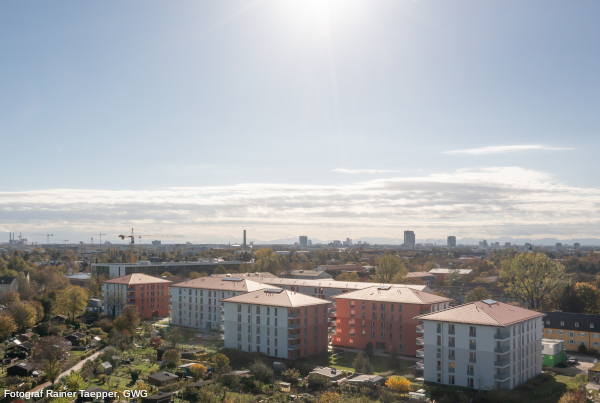Meteorological real-time data for the Munich housing sector
05.04.2023

The building sector has to meet the major challenge to achieve climate targets in the heating sector. Various renovation measures such as insulating exterior walls, replacing windows or switching to renewable heat generation contribute to improvements of the carbon dioxide balance of buildings. Due to the enormous increase in energy prices, the topic of energy-efficient refurbishment becomes increasingly relevant economically.
However, large housing companies such as GWG Städtische Wohnungsgesellschaft München mbH are interested in whether the costs of refurbishment pay off in the long term. In order to answer these and other questions of the heating transition, measured values from the properties as well as precise meteorological measurements are indispensable. Air temperature, humidity, solar radiation and wind conditions significantly influence the thermal behaviour and heat demand of buildings.
The Meteorological Institute provides this data to GWG in order to form a digital network for some of its existing buildings as part of a pilot project with the help of the Munich-based company ENIANO and the ENIANO CONNECT framework. Live measurement data from MIM was made available in real time and was integrated into this "digital twin". The Munich Society for Urban Renewal (MGS), a subsidiary of GWG Munich, carries out the data analysis and develops appropriate optimization measures. GWG München can start evaluations based on the digital twin and view all live data of the equipped properties via an interactive dashboard. Thanks to this technical innovation, it is now possible, for example, to evaluate refurbishment measures, to optimize heating operation or to plan further efficiency measures.
High-quality and real-time meteorological data provide a decisive added value for the project. The Meteorological Institute is therefore pleased that its measurement data can make a significant contribution to the success of the thermal transition in Munich.

